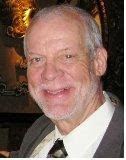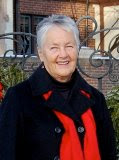In every corner of the
world, from the time a child is first able to understand her or his native
tongue, they are taught to believe what their parents believe. They learn what “truth” is in the same way
that they learn how to wash their hands before dinner or how to dress
themselves. At first, they do it because
their parents make them do it. Later,
they do it because they see the sense in it.
They learn not to touch a hot stove because it burns, just as Mommy or
Daddy told them. They soon realize that
Mommy and Daddy are pretty smart and they could learn a lot from listening to
them.
world, from the time a child is first able to understand her or his native
tongue, they are taught to believe what their parents believe. They learn what “truth” is in the same way
that they learn how to wash their hands before dinner or how to dress
themselves. At first, they do it because
their parents make them do it. Later,
they do it because they see the sense in it.
They learn not to touch a hot stove because it burns, just as Mommy or
Daddy told them. They soon realize that
Mommy and Daddy are pretty smart and they could learn a lot from listening to
them.
Before long, Mommy and
Daddy are taking them to church. In
church, they learn all kinds of new rules and “truths”. Most, if not all, of these “truths” cannot be
verified through personal observation.
But because they have come to trust their parents to be truthful with
them, they believe them. Why not? Lots of good things are supposed to happen to
them if they will only believe.
Daddy are taking them to church. In
church, they learn all kinds of new rules and “truths”. Most, if not all, of these “truths” cannot be
verified through personal observation.
But because they have come to trust their parents to be truthful with
them, they believe them. Why not? Lots of good things are supposed to happen to
them if they will only believe.
As the children begin to
go out into the broader world more and more, they soon discover that some of
the other children do not hold the same truths as “self-evident”. This causes conflict and confusion. Some parents—hoping at the very least to
postpone this internal uncertainty—“home school” their kids. Others send their kids to schools whose
teachings include faith-based instruction.
go out into the broader world more and more, they soon discover that some of
the other children do not hold the same truths as “self-evident”. This causes conflict and confusion. Some parents—hoping at the very least to
postpone this internal uncertainty—“home school” their kids. Others send their kids to schools whose
teachings include faith-based instruction.
So far, so good. The parents are happy and their children are
content. As they grow older, they become
more-and-more convinced that their view is the way things really are. In fact, they may not even be aware that
there are people who see the world in an entirely different way.
content. As they grow older, they become
more-and-more convinced that their view is the way things really are. In fact, they may not even be aware that
there are people who see the world in an entirely different way.
Sooner or later, however,
they are almost certain to bump up against something they read in the newspaper
or a magazine or book that seems inconsistent with what their parents and
religious leaders taught them. This
could affect them in a couple of ways—it might cause them to become defensive
and contentious or they might begin to question what they have always been
taught and seek to find the truth on their own.
they are almost certain to bump up against something they read in the newspaper
or a magazine or book that seems inconsistent with what their parents and
religious leaders taught them. This
could affect them in a couple of ways—it might cause them to become defensive
and contentious or they might begin to question what they have always been
taught and seek to find the truth on their own.
For example, let’s say
the child has been taught and has come to believe in the story of the “creation”
of the universe as taught in Genesis. In
fourth grade science class one day or at the movies or on TV, she or he hears
that the earth and universe were formed over billions of years. These two ideas are hard to reconcile. It would require quite a fertile imagination to
embrace both concepts simultaneously.
Now, the child or adolescent is faced with making a choice between two
“truths”. One choice will risk the child
losing the good graces of one or both parents and the other will call into
question all he or she knows about their faith, including their standing with
God.
the child has been taught and has come to believe in the story of the “creation”
of the universe as taught in Genesis. In
fourth grade science class one day or at the movies or on TV, she or he hears
that the earth and universe were formed over billions of years. These two ideas are hard to reconcile. It would require quite a fertile imagination to
embrace both concepts simultaneously.
Now, the child or adolescent is faced with making a choice between two
“truths”. One choice will risk the child
losing the good graces of one or both parents and the other will call into
question all he or she knows about their faith, including their standing with
God.
It’s pretty clear to me
which choice is the one to make if you want to cut your losses. Thus, many will cling tenaciously to the
spiritual tenants of their parents, regardless of what the vast majority of
well-educated scholars and learned professors may tell them.
which choice is the one to make if you want to cut your losses. Thus, many will cling tenaciously to the
spiritual tenants of their parents, regardless of what the vast majority of
well-educated scholars and learned professors may tell them.
This would not create too
much of a stir if not for the inconvenient truth that these individuals, whose
political philosophy is grounded in the same mythology as their religion, use
their vote and their voice in furtherance of ideas grounded not in what is
known but in what is Legend. For these
people, knowledge is the enemy, since truth is “revealed” but only to the
“favored”. Since they are among the
“favored”, they are not morally obligated to ever change their beliefs. In fact, it is part of their mission to try
to prevent ideas they disfavor from ever being seen by the unwashed public.
much of a stir if not for the inconvenient truth that these individuals, whose
political philosophy is grounded in the same mythology as their religion, use
their vote and their voice in furtherance of ideas grounded not in what is
known but in what is Legend. For these
people, knowledge is the enemy, since truth is “revealed” but only to the
“favored”. Since they are among the
“favored”, they are not morally obligated to ever change their beliefs. In fact, it is part of their mission to try
to prevent ideas they disfavor from ever being seen by the unwashed public.
As members of one or
another sexual minority group, we have been victimized by such people for
millennia. Other victims include Jews,
atheists, agnostics, Muslims, Buddhists, Farsi, Hindi, Native Americans,
Africans, women seeking abortions, socialists, liberals and too many others to
name. Would the U.S. have unleashed the
hydrogen bomb on Japan if they had been Caucasian Christians like the Germans?
another sexual minority group, we have been victimized by such people for
millennia. Other victims include Jews,
atheists, agnostics, Muslims, Buddhists, Farsi, Hindi, Native Americans,
Africans, women seeking abortions, socialists, liberals and too many others to
name. Would the U.S. have unleashed the
hydrogen bomb on Japan if they had been Caucasian Christians like the Germans?
I must make it clear that
I do not see “belief” per se as the problem.
Rather, as Karen Armstrong has brilliantly lain out in her book, The
Battle for God, the curse of all civilizations throughout time is
Fundamentalism, in any of its myriad forms.
Essentially, Fundamentalism is the conviction (I hesitate to use the
word ‘belief”) that there is but one Truth with a capital ‘T’. All other opinions are blasphemy and must be
wiped out. Most certainly, they must not
ever be given any thought for fear that they might pollute the Pure Mind. For these folks, to think, as was the
official slogan of the General Electric Co. in the 1950’s and ‘60’s that
“Progress Is Our Most Important Product” is nothing short of Devil’s Talk.
I do not see “belief” per se as the problem.
Rather, as Karen Armstrong has brilliantly lain out in her book, The
Battle for God, the curse of all civilizations throughout time is
Fundamentalism, in any of its myriad forms.
Essentially, Fundamentalism is the conviction (I hesitate to use the
word ‘belief”) that there is but one Truth with a capital ‘T’. All other opinions are blasphemy and must be
wiped out. Most certainly, they must not
ever be given any thought for fear that they might pollute the Pure Mind. For these folks, to think, as was the
official slogan of the General Electric Co. in the 1950’s and ‘60’s that
“Progress Is Our Most Important Product” is nothing short of Devil’s Talk.
© 11 Jan 2016
About
the Author
the Author
I came to the beautiful state
of Colorado out of my native Kansas by way of Michigan, the state where I
married and I came to the beautiful state of Colorado out of my native Kansas
by way of Michigan, the state where I married and had two children while working
as an engineer for the Ford Motor Company. I was married to a wonderful woman
for 26 happy years and suddenly realized that life was passing me by. I figured
that I should make a change, as our offspring were basically on their own and I
wasn’t getting any younger. Luckily, a very attractive and personable man just
happened to be crossing my path at that time, so the change-over was both
fortuitous and smooth.
of Colorado out of my native Kansas by way of Michigan, the state where I
married and I came to the beautiful state of Colorado out of my native Kansas
by way of Michigan, the state where I married and had two children while working
as an engineer for the Ford Motor Company. I was married to a wonderful woman
for 26 happy years and suddenly realized that life was passing me by. I figured
that I should make a change, as our offspring were basically on their own and I
wasn’t getting any younger. Luckily, a very attractive and personable man just
happened to be crossing my path at that time, so the change-over was both
fortuitous and smooth.
Soon after, I retired and we
moved to Denver, my husband’s home town. He passed away after 13 blissful years
together in October of 2012. I am left to find a new path to fulfillment. One
possibility is through writing. Thank goodness, the SAGE Creative Writing Group
was there to light the way.
moved to Denver, my husband’s home town. He passed away after 13 blissful years
together in October of 2012. I am left to find a new path to fulfillment. One
possibility is through writing. Thank goodness, the SAGE Creative Writing Group
was there to light the way.

